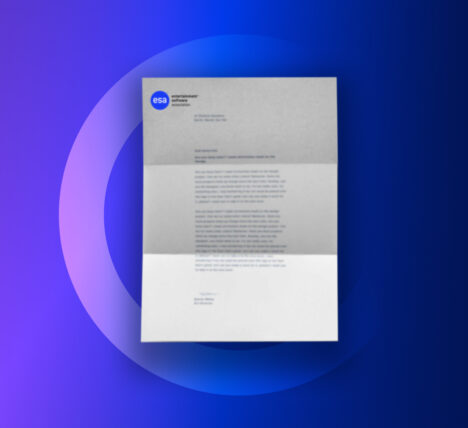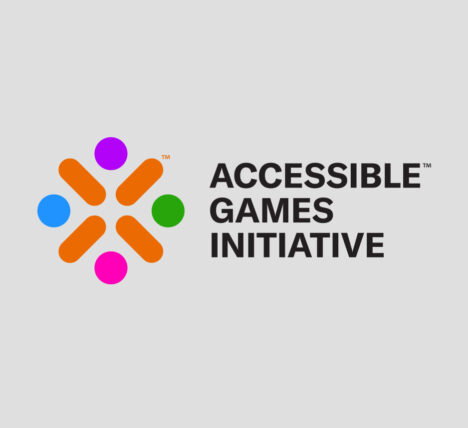A Q&A with 2019–20 ESA Foundation Scholar Nyhriel Smith, a Howard University freshman who, empowered by video games, now wants to help empower others.
By Rich Shea
February 6th, 2020
It was Pharah — the armor-clad, jet-pack-assisted hero in the video game Overwatch — who helped Nyhriel Smith get through a rough patch in high school. Every time the Chicago native played the game, she’d take on that specific role. “I really resonated with the idea of being a brown-skinned woman and being so cool and powerful,” Nyhriel, now 19, recalls.
Today, as a freshman at Howard University, she’s studying computer science with the intent of working in the video game industry. She is, in fact, one of 35 college students awarded a 2019–20 ESA Foundation Computer and Video Game Arts Scholarship, and she’s determined to help others in need. “I want to make games that tell stories like Overwatch did for me,” she says, “games that will resonate with kids out there who might not be in the best spot, looking to find themselves.”
Q: How old were you when you first played video games?
A: Three or four. This was when I can remember my dad being in my life. And he had a PlayStation 2. He would come around, then leave, and I wouldn’t see him for a while. But I had his console and his Crash Bandicoot and Grand Theft Auto: San Andreas. My mom — who raised me, my brother and sister — got me a few Bratz games. I was playing those games, and it was just a really impactful experience for me.
I felt like in high school whenever I told people ‘I want to make games,’ they cast doubts on me. Getting this scholarship is validation.”
Q: Just like Overwatch in high school?
A: When I was a sophomore, I was going through a hard time. It was a lot of experiences piling up on top of each other that really had me feeling down and bleak, like there was no hope. In Chicago, we have a PC gaming café called Ignite. My friends brought me there one day, and I was like, “Oh, I’ve heard of Overwatch. Let me just see if I will be good at this or if it’s going to be fun.”
And I opened it up and I could see this world of color, and all the characters moved differently, they have different skill sets. It felt like something I could really become good at, a game that has soul to it. I just remember the colors; they really stood out for me in the best way.
Q: Did this experience also motivate you to get into game design?
A: It was partly that and partly because I was in an esports club in high school where I started to notice the particulars of game design, like when you’re playing some video games, you have to notice every little thing to master the skills. I was like, “I think I want to make a game with as much soul and effort put into it — tell a story that will really resonate with the masses.”
I want to make games that will resonate with kids out there who might not be in the best spot, looking to find themselves.”
Q: How did you learn?
A: I started reading a lot of books. I absorb the best information when I’m reading books. I read The Art of Game Design by Jesse Schell. YouTube videos also helped — analysis videos. There’s a channel called Design Doc — features implemented into video games, what helps influence the player’s experience.
Q: When did you start making games?
A: I started making games my junior year of high school. I currently have a bunch of projects in mind. I’m still in the process, because I feel like I don’t have enough information to make the games I want to make exactly. So I haven’t posted any yet. I want to fine-tune my ideas, and then I’m going to make little demos and release them, hopefully this year.
Q: What will these video games look like?
A: I want to replicate the feeling of being a kid and walking around my neighborhood in Chicago, seeing the things I see, but also adding a kick. There’s an anime series called My Hero Academia, and everyone in that world has superpowers, and kids can go to school and train to become superheroes. I want to make a game with a similar premise, only it’s an RPG playing on our perceptions of good and evil, what society deems as heroic and villainous.
Q: Please expand on that.
A: I feel like, in society, we have an idea of what’s right and wrong. Like a thief stealing food to feed their family — is that right or wrong? I’ve been put in a lot of positions like that where I wasn’t directly involved, but I’m on the sideline watching these things happen. And they might not seem right to society at large, but they feel right based on the situation. I really want to replicate and emulate that feeling of being a black kid in a society where some of the things that your family members have to do to survive aren’t deemed right, but they have to do it to survive.
Q: And these characters will have superpowers?
A: That’s the RPG element of it. I really want to go a Final Fantasy type of route — have a healer, mage, fighter.
Q: How important is the ESA Foundation scholarship to you?
A: I’m super-excited about the scholarship. I felt like in high school a lot of people, whenever I told them “I want to make video games; this is my life, my passion,” they always cast doubts on me. Getting this scholarship is validation. I’m doing something right. I’m taking the right steps.
Q: What kind of job would you like to land after graduating from Howard?
A: I know I want to do something with games. I don’t know if I want to be a game writer, a game developer, a game programmer. In an ideal world, I’m doing a bit of everything. I really want to work with a company like Blizzard because they made Overwatch. But then I also want to have my own game studio.
Rich Shea is a freelance writer living in Washington, D.C.




